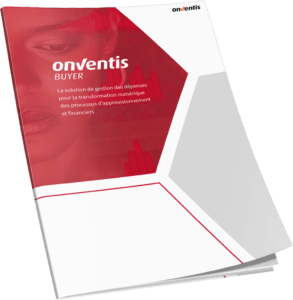Source-to-Pay: Strategic End-to-End Procurement
Efficient and cost-effective procurement of goods and services is of crucial importance to companies. Purchasing organizations face the challenging task of optimizing their procurement processes strategically, tactically and operationally and to achieve their set procurement targets. To meet these challenges, the concept of source-to-pay was developed.

Source-to-Pay: Strategic End-to-End Procurement
Efficient and cost-effective procurement of goods and services is critical to companies. Purchasing organizations face the challenge of optimizing their procurement processes strategically, tactically, and operationally in order to achieve their defined procurement goals. The primary focus is on cost reductions, quality optimizations, and strengthening supplier relationships. It is important to develop a well-balanced strategy that considers the individual needs and priorities of the company while simultaneously leveraging a strategic competitive advantage over the competition.
To master these challenges, optimizing the entire procurement process – from sourcing, supplier management, and order placement to spend analysis is essential. For this very purpose, the concept of source-to-pay was established, also known as S2P, which covers all phases of the procurement process. This enables holistic and comprehensive management of all procurement activities in one system to ensure consistent implementation of the purchasing strategy throughout the entire process. Every department in the purchasing organization benefits from the advantages of a digital procurement solution, which drives optimization and improvement.
The Source-to-Pay Process
Source-to-Pay essentially consists of the following sub-steps:
- supplier management
- requirements determination
- order and delivery
- payment
- spend analysis
Source-to-Pay (S2P) is made up of the two sub-processes Source-to-Contract (S2C) and Procure-to-Pay (P2P). Source-to-Contract refers to the first part of the S2P process, which deals with the strategic purchasing orientation. Suppliers are selected, and contracts are negotiated and concluded in this sub-step. S2C covers the planning and implementation of the procurement strategy as well as contract negotiations with suppliers to achieve the best possible terms and conditions.
Procure-to-pay forms the second part of the S2P process and deals with the operational side of procurement. It covers the entire process from requirements determination through order processing to supplier payment. P2P includes ordering, supplier communication, order release, goods receipt, and invoice processing, including payment.
Spend analysis can enhance the procurement process by collecting additional insights and intelligence into a company’s spend as part of the source-to-pay process. It allows companies to examine and evaluate the entire S2P process. AI-driven technologies play a critical role in providing transparency and reducing costs. Spend analysis provides important information that is vital in making strategic decisions in the S2P process. Extending the source-to-pay process with spend analysis strengthens the company’s strategic direction and cost management and supports optimizing procurement activities.
By combining S2C and P2P, the S2P process covers the entire procurement cycle, from strategic planning and contract negotiation to operational processing and payment. Integrating both sub-processes enables efficient and transparent procurement, linking the company’s strategic goals with operational measures.
The Phases of the Source-to-Pay Process in Detail
A fully automated S2P solution offers many functions that relieve the purchasing & accounts payable departments and enable a strategic alignment of their tasks. This results in freed-up resources, time savings, cost savings, and process optimization. In the following, you will learn how a digital S2P solution optimizes the sub-steps of the entire procurement process.
Supplier Management
The main priority is the systematic control and management of suppliers. In a digital supplier management solution as part of S2P, supplier relationships can be controlled in a centralized environment. Suppliers are also qualified, classified, and evaluated in the system in order to support and promote cooperation with verified and approved suppliers, which provides significant support in risk management.
Determining Requirements
Accurate determination of future material needs and requirements is crucial before the order is placed. With the support of digital S2P systems, it is possible to determine requirements quickly and easily. The system facilitates the creation, approval, and execution of purchase orders. All the company’s requirements are collected and managed centrally in one system, significantly increasing transparency. The process of determining requirements is accelerated, as the system automatically forwards the purchase order to the appropriate responsible parties for approval. This increases efficiency and minimizes the possibility of errors.
Order and Delivery
By using an S2P solution, the ordering process can be efficiently automated. The solution enables automatic transmission of orders to suppliers, processing of order confirmations by the system, and automatic recording of delivery information which speeds up the process considerably. In addition, the S2P solution provides pre-configured catalogs, stored supplier information, and user-friendly interfaces to simplify selection and ordering. Once the order is placed, buyers can track the status in real-time, view delivery dates, and retrieve information about the order. As a result, the order can be processed more quickly. Purchasing organizations can intervene in case of bottlenecks and take appropriate measures in good time.
Payment
After the order and delivery of goods, the invoice is issued. Digital tools optimize this step by automating invoice processing. Robotic accounting enables automated workflows that take over the matching, approval, and authorization of invoices without human intervention. This minimizes manual processing while saving time and money. Digital invoice processing using Invoice Processing represents the great digitalization potential of S2P processes.
Spend Analysis
A spend analysis covers the entire S2P process and enhances it with a targeted analysis of expenditures by answering important questions that deal with a company’s spend. These expenses can be analyzed and filtered by categories, suppliers, transactions, or compliance guidelines. This creates more transparency about costs, uncovers potential savings, and optimizes cash management in purchasing. The insights gained help to improve the entire procurement strategy and the S2P process continuously. Spend analysis is not a sub-process step of S2P but represents an analysis of the S2P process itself.
End-to-End Integration and Comprehensive Optimization: An S2P Solution for Efficient Procurement
A holistic S2P solution integrates all procurement sub-process steps. This eliminates redundant steps and manual interfaces, enabling procurement activities to be carried out smoothly. All supplier, contract, purchase order, and payment information is recorded and managed centrally in one system. This enables effective collaboration within the procurement organization. In the process, the S2P solution can be adapted to the specific needs and requirements of the company while still providing digital support for the entire purchasing process. As a result, not only are individual areas of purchasing optimized, but the entire process is comprehensively streamlined.
If you would like to learn more about our source-to-pay solution and its features, please visit us here, or arrange a live demo with us and get to know our suite up close and personal.
Weitere BlogsMore BlogsMeer blogs




